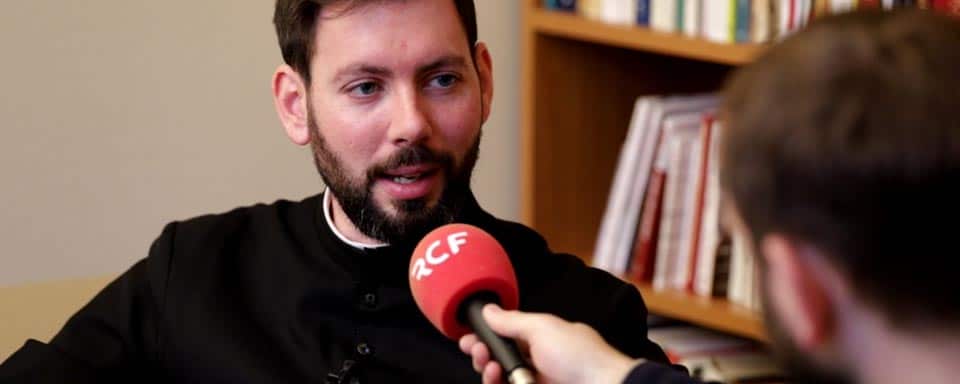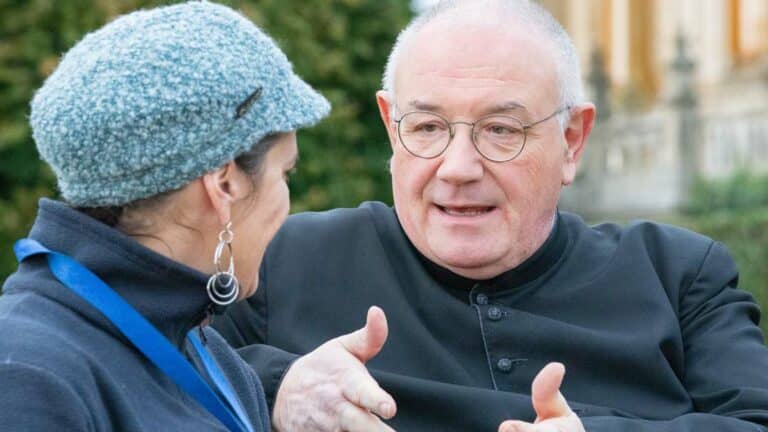Christians believe in the resurrection of the body and in life everlasting. Indeed, the deceased are well alive in heaven. Faced with death, one might doubt such a reality, especially so as most often demise is experienced as a breach in relationships. In such a context, after we die, will we see our loved ones?
Can we expect to encounter our loved ones after we die?
To undergo someone’s demise is a cruel experience . It represents such a significant rift in relationships that one might consider it to be the end of it all, that the deceased no longer exists. Yet, as Christians, we can draw on Christ’s death and resurrection to try and understand what will take place. As St. Paul states “And if Christ has not been raised, then empty (too) is our preaching; empty, too, your faith” (1 Cor 15, 14). The Catholic Church asserts that “Therefore the union of the wayfarers with the brethren who have gone to sleep in the peace of Christ is not in the least weakened or interrupted, but on the contrary, according to the perpetual faith of the Church, is strengthened by communication of spiritual goods.” (Lumen Gentium, n°49).
The faith of the Church supports that death is not the end of it all and that a bond endures. It is tangible in the prayer for the dead which is part of the holy Mass ever since the foundation of the Church. This goes to prove that they subsist and that one can do something for them. Likewise praying the martyrs’ tombs, asking for the intercession of those who have already reached Heaven. There really is a connexion between those who are still down here on earth and those who have died.
How about the people who are in hell? Should we fear to never see them again?
I like Cardinal Schönborn’s response: “Hell is never a reality to be thought of for others, but for ourselves”. The existence of hell entails that the evil one commits can lead to ultimate separation from God. The Church never proclaimed anyone to be in hell, not even Judas, but she requires us to hope in salvation for our deceased. Moreover, it is not so much a question of mere hopefulness, but of hope based on the resurrection of Christ Jesus who incarnated to reclaim all men. This is the reason why I expect my neighbour’s salvation, even if he did me wrong. I should not so much worry about whether or not he is in hell but, rather, be compassionate and pray for him. For, if he did any wrong, therefore he needs me. A good model is the repentant Thief: he asked for forgiveness and reached Heaven.
The deceased who are in Heaven are contemplating God. Shall we recognise them as they will be radiating God’s glory?
The fact that we shall all meet again in Heaven is accepted, yet we stumble upon the “how?” However, the Gospels relating the Resurrection help us apprehend the type of life we will be living once in Heaven. When the Risen Christ was appearing during 40 days, his friends did not recognise him. Something had changed but nevertheless, they all ended up recognising him, and that was brought about by what they had shared together.
For example, Thomas, recognised Jesus when he saw the mark of the nails because he had witnessed the crucifixion. As for the disciples of Emmaus, it was through the breaking of the bread because they either personally were in the Upper Room on Maundy Thursday, or were acquainted with what had taken place. As for Mary of Magdala recognised Jesus when He called her name as she had not forgotten the sound of his voice. Jesus is the same person, with the identity which they had known during their life.
I dare say that charity will enable them to recognise one another. Indeed, Thomas recognises Jesus in seeing the mark of the nails clous, i.e. Jesus’ mark of charity for his sake. For Jesus offered his life for Thomas as: ” No one has greater love than this, to lay down one’s life for one’s friends.” (Jn 15:13) The disciples on the road to Emmaus recognise him in the sacrament of love denoted by the Eucharist, and Christ’s sacramental presence in the Church.
Mary of Magdala heard Jesus and she recalled all the love and affection she has for him. In general, one thinks that what matters most in one’s life is love, and how rightly, yet, one does not quite apprehend why. One explanation as it stands is that it will be due to the love of neighbour that I shall recognise them when I am in Heaven.
Upon reaching Heaven, we might be bewildered of the transformation that will have occured in others, just as much as in the relationships uniting us.
Will we see them in total transparency and truth, together with what they have done right and wrong?
We shall see them according to charity, but also due to something else: in Heaven, we shall see God as he is, and cause our joy and rest. Upon seeing him, we will furthermore have the grace to share his gaze on creation and thus, on each of the people we have loved. Thus, in heaven, we will see our beloved ones, not only with our eyes as we used to on earth, but also through the eyes of God who created us and knows all about us.
Moreover our understanding will be different and a abyssal source of wonder for we shall see as God sees! We shall be able to see many a hidden things that are good and this will be cause of rejoicing for all.
Should we hope to not encounter people we did not love, or who had hurt us or even done us evil?
Our hope as Christians is that all will be saved. The equilibrium between a legitimate detestation of evil, a just longing for justice, and expectation that those who commit evil will be redeemed, is far from easy to achieve. Here on earth, when we are done wrong, we severe the relationship. However, should our wrong-doers reach Heaven, it will be due to their admitting having done evil and having humbly petitioned the Lord for forgiveness. Moreover, they will ask us for forgiveness too, how humbling. Alike Satan, they could have chosen to serve themselves and not God, breaking away from him. The fact that in the end, good prevailed in them will be cause of rejoicing for us too.
When one reflects on the repentant Thief for example, one does no longer recall the life he used to lead, neither of the evil he did nor of consequently self-inflicted wounds. Quite the opposite, one recalls his meekness. Let us wish Heaven to the nastiest person whom we would rather never see again, because Heaven will be their sanction, but in a beneficial way.
The shrine of Montligeon offers “Thank you/Sorry” cards, what are they for?
The bonds with our deceased are not severed by death. Relationships between the living and the dead can still develop by means of exchanging spiritual goods. At the shrine of Montligeon, small cards are on avail on which one can write a note to one’s deceased to express gratitude, or ask for -or to offer- forgiveness. What a great way to adjust our relationships. Furthermore, one can address such a card to someone one disliked and thus, one can offer forgiveness.
Already, for the living person, it reveals a great step forward regarding purification. As for the deceased, it might just be the very forgiveness need prior to moving on. Once written, this card can be slipped in the dedicated mailbox located at the feet of the statue of Our Lady of deliverance of the holy souls. Now doubt, the blessed Virgin Mary will take care of forwarding the mail…




